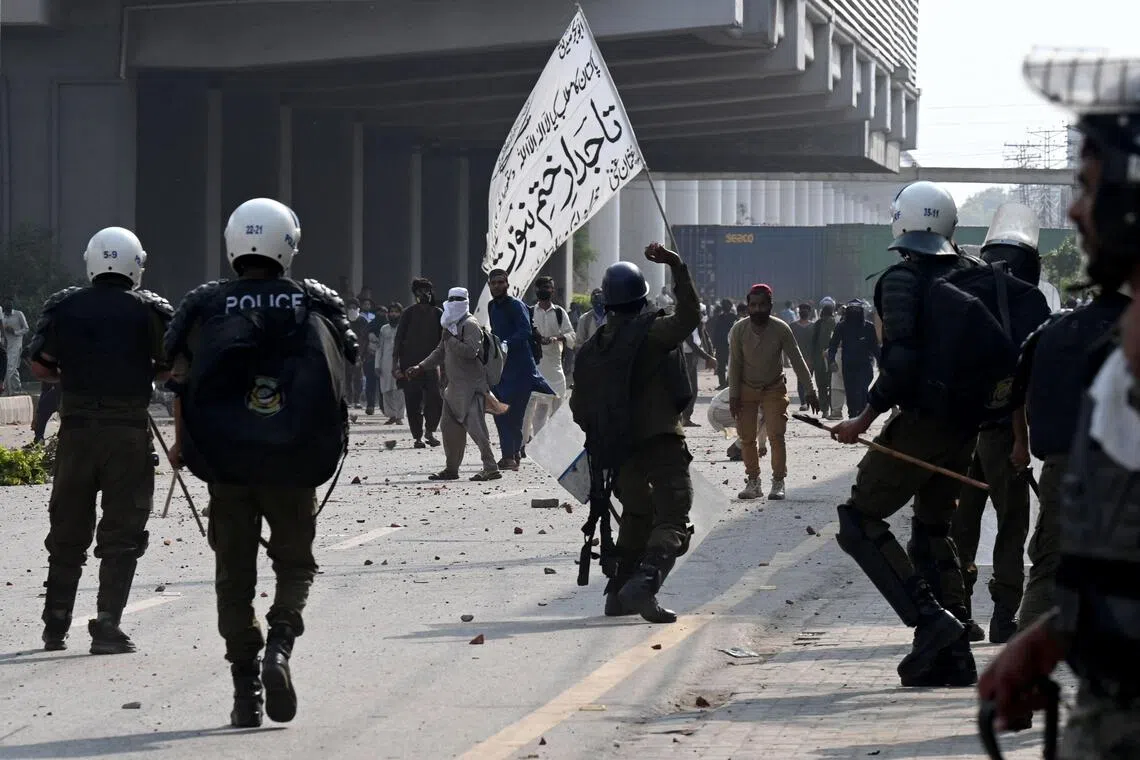Pakistan bans Islamist party after deadly clashes
Sign up now: Get insights on Asia's fast-moving developments

Tehreek-e-Labbaik Pakistan activists clashing with the police in Lahore on Oct 10.
PHOTO: AFP
- Pakistan banned Tehreek-e-Labbaik Pakistan (TLP) after clashes resulted in five deaths during an anti-Israel protest.
- The TLP, a Sunni Muslim party, secured over two million votes in 2018 and was previously banned in 2021.
- The government stated that "the TLP is involved in terrorist and violent activities," while the TLP rejected the ban. (Reuters)
AI generated
ISLAMABAD – Pakistan banned an Islamist party for the second time in four years on Oct 23, a week after five people died in clashes between its members and the police.
Followers of the Tehreek-e-Labbaik Pakistan (TLP) party took to the streets for an anti-Israel protest march ahead of US President Donald Trump’s announcement of a ceasefire deal aimed at ending the Gaza war.
Pakistan’s Cabinet unanimously approved the ban, the government said in a statement. “The TLP is involved in terrorist and violent activities,” it said.
The group said it rejected the ban, calling it “unconstitutional, vindictive, illegal and dictatorial” in a statement.
The Sunni Muslim organisation was launched as a pressure group at the funeral of a police guard who had killed a provincial governor accused of blasphemy in 2011.
It got into politics in 2016 and became the fourth-largest party after securing more than two million votes in 2018 election.
The TLP has held regular mass rallies, predominantly focused on religious and political issues, ranging from Gaza to caricatures of the Prophet Muhammad published in the French satirical magazine Charlie Hebdo.
The party was banned by the government of Prime Minister Imran Khan in 2021 after violent protests, but the order was lifted within six months on the condition that the party stop using violence.
Blasphemy is punishable by death in Pakistan. Human rights groups say the blasphemy laws are often misused to settle personal scores. Many people have been lynched after accusations of insulting Islam or its Prophet. REUTERS


